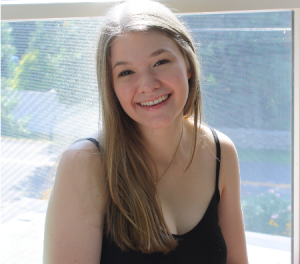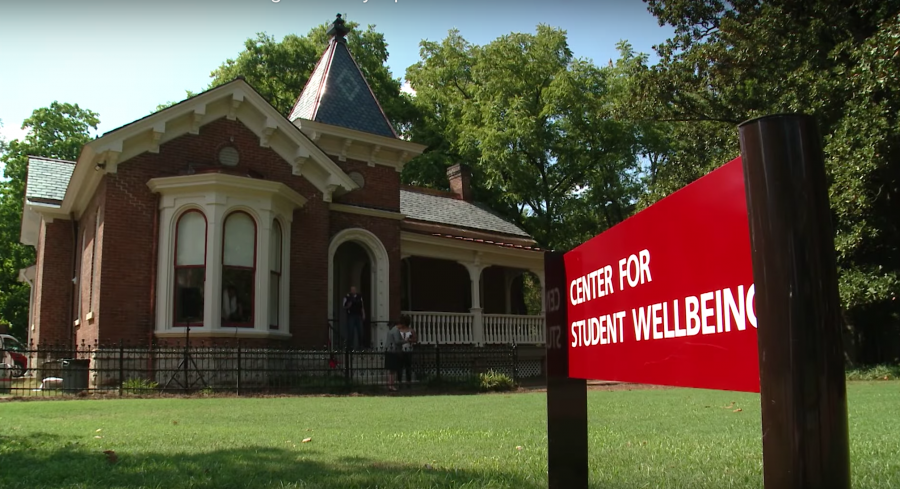The Center for Student Wellbeing partnered with the Office of Student Leadership Development to pilot a new peer guides program Feb. 8 for students to come into the center and meet with a student who is trained to coach them on stress and time management as well as their priorities and their sleep.
The program is a partnership between the Office for Student Leadership Development and the Center for Student Wellbeing. There are currently three peer guides available to meet with students, one sophomore and two juniors. Each peer guide is in the center for three hours each week and is available for 30-minute walk-in or scheduled appointments.

The members of the Office of Student Leadership Development’s student advisory board, the Vanderbilt Student Leadership Team, are beginning to graduate, and the Center for Student Wellbeing opened this past summer. To the leadership of both offices, this seemed like the perfect opportunity to create a program that incorporated both leadership and mental health components.
“We still wanted a chance to work with and advise students, and then create an opportunity for them to give back to other students,” said Austin Tatum, a Graduate Assistant in the OSLD. “So that’s kind of where this model came about.”
At the end of the 2015-16 academic year, the OSLD began to contact students who they had previously worked with who they knew could make effective peer guides. Over the summer, they carried out a phone screening process and ended up with the three peer guides: sophomore Charlotte Buck and juniors Margot Kenagy and Sydney Silberman.
“I had been looking for ways to get more involved in campus life, and I’m not a terribly outgoing person, so I felt like this was a good medium commitment,” Buck said. “I’m also really interested in mental health and wellbeing.” Kenagy is also a VUceptor but notes that a peer guide differs from the VUcept program and that each serves a unique purpose.

“I had already at this point been accepted to VUcept, and I’m super into peer mentorship, but I thought that this was a cool balance between the more professional side of things and then the more student-to-student side,” Kenagy said. “VUcept is amazing, but it’s a little bit more casual. So I thought it was just the perfect balance, really, and just a program that I think we need on this campus.”
Representatives from the OSLD and the CSW trained the guides once a week throughout first semester on topics such as mental health and wellbeing, leadership development and leadership theory. The guides also practiced a strategy that the program employs called motivational interviewing. There is also continued education for the peer guides, who will meet with CSW supervisors and each other to discuss their experiences.
“Those are intense trainings, a lot of hours and sort of heavy material,” said Jason Steinas, Student Wellbeing Coordinator at the CSW.
Throughout the training process, the guides also heard from representatives from campus partners such as Project Safe, Greek Life, the Commons and Inclusion Initiatives and Cultural Competence. Part of the training was assuring that the peer guides know when to refer students to professional resources on campus, such as the Psychological Counseling Center and the staff at the Center for Student Wellbeing, who are always present in the center during peer coaching hours.

The peer guides are trained to assist students with issues pertaining to emotional wellbeing, leadership development, life transitions, personal health, self efficacy, social support and relationship building, and stress management. They are equipped with resources that they can hand out to students, and have been taught to leave each student with an action plan at the end of the coaching session.
“Another big thing is priorities, and we did a lot of like those StrengthsQuest and StrengthsFinder things,” Kenagy said. “And helping students figure out what is important to them and how to balance all of those things. That’s a huge thing on this campus, trying to balance almost everything, so that’s probably gonna be a big one.”
An advantage of discussing these types of issues with a peer versus with a staff member is that the peer guides can relate better to what’s going on on campus currently, Kenagy added.
“I think the three of us have been through a lot,” she said. “So we know what’s going on, I guess a little bit better than [the staff does].”
The peer guides are a private resource, and are not permitted to discuss anything discussed during a coaching appointment with any other students.
“They’re going to do great work,” Tatum said. “There’s no doubt. Any student who comes in is going to be lucky to meet with any one of these three, no doubt.”
For more information on the peer guides program, including the coaching hours, bios of the guides, and details about how to make an appointment, click here. The application to become a peer guide for the 2017-18 academic year opens on Anchorlink on March 1.

